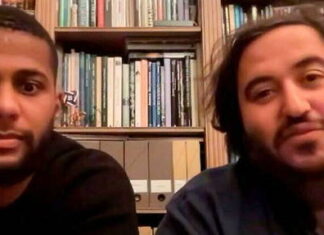In a civilized country, adherence implies reason. Emmanuel Macron “took note” of the government parties’ refusal to form a coalition. As if it was their fault. This refusal was not opposed to France, but to the person of its president. Moreover, if he mentioned the formation of a government of national unity, he did not specify either the contours or the nature. The responsibility for the sterility in which public action is rendered is at least shared. And the president to opt for a confrontation with his Parliament. And this Parliament to reconnect with its true nature, the one imagined for it by a man at the origin of our rule of law: Napoleon Bonaparte.
The election to positions of responsibility in the National Assembly, questorship, vice-presidency, committee chairman, etc., has aroused surprising interest. As if democracy, missed out on the presidential election, was unfairly rewarded for its efforts. This is all the more surprising since the committees were specifically designed to hamper parliamentary omnipotence.
By becoming First Consul (1799), Napoleon certainly strengthened the powers of the executive, but he also spared the legislative power made sacred by the French Revolution ten years earlier. Under the Consulate, there will not be two, but four assemblies. The Legislative Body and the Tribunate. The first votes the law without discussing it, the second discusses it without voting it. The Senate, conservator of the Constitution, and the Council of State fulfill essentially technical, constitutional and administrative missions.
Instead of repeating nonsense about the Napoleonic period, calling him a dictator and a tyrant without knowing anything about it, it is not useless to work on your constitutional rights. In the Dictionary of the institutions of the Consulate and the Empire, Thierry Lentz and Pierre Branda* recall the complexity of the birth of rationalized parliamentarism. At the start of the Consulate, no one wanted to hear about the committees of the assembly whose limits and sometimes hysteria had been demonstrated by the Revolution. The sections or commissions are therefore despised.
Later, Napoleon understood what benefit the state could derive from a fragmentation of legislative power. It was not until the reform of the Constitution of Year X (1802, that is to say the advent of the consulship for life) that the government supervised the participation of the assemblies in the formation of the law. The Tribunate is divided into three sections: Legislation, Interior, and Finance. Their presidents are elected. In 1807, the Tribunate voted unanimously to dissolve it. Henceforth, the Legislative Body represents, embodies and assures the legislative power. Napoleon took a further step in administrative rationalization and the domestication of assemblies. It creates three commissions (legislative, criminal and civil, interior administration and finances). Each of them has seven members appointed by the Legislative Body and a legislator who presides over them, appointed by the Emperor.
“These specialized commissions discuss bills, forming in case of disagreement a conference with the members of the section of the Council of State that prepared the bill and presenting them to the Legislative Body, which votes on them. The presence of the public in assemblies is strictly regulated, with one aim: to prevent popular pressure from influencing the work of parliamentarians. Similarly, the regulations relating to the holding of the debates take care to contain the plebeian impulses, in the proper sense of the term. The Head of State wants a legislative power that legislates, without governing. It is clear that, as far as the Consulate is concerned, the idea was a good one. Never has France been so deeply reformed, and never have reforms been destined to last for so long and in such considerable proportions. The Fifth Republic imagined by General de Gaulle was not far from the principles of the Consulate.
* Under the direction of Thierry Lentz, with Pierre Branda, Pierre-François Pinaud, Clémence Zacharie, Dictionary of the institutions of the Consulate and the Empire, Paris, Tallandier, 2008.


















